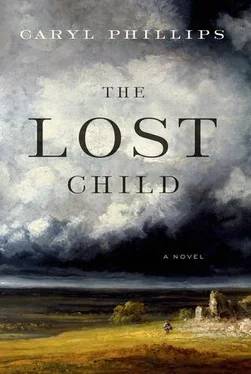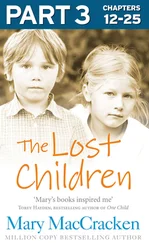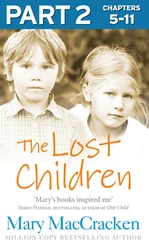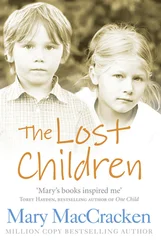During that first wintry night in his bed, he admitted to her that something about her quiet generosity and ability to listen made him feel safe and anchored in England. He whispered: “This is what you have given to me.” As she once again enticed him to cuddle under the blanket, he didn’t tell her that never before had he experienced what it felt like for a girl to be hungry for him and eager to please but equally keen to attain her own satisfaction. He had been in the country for seven years now, but possessing Monica Johnson signalled an arrival. They both wriggled out from beneath the blanket and listened to the sudden commotion of hectic, scurrying footsteps up above on street level, and then she pulled herself onto one elbow and simply looked down into his dark eyes.
“Monica Johnson,” he said, “you are a remarkable young woman.”
“Thank you, but I’m just being myself.”
She pecked his lips before rolling back onto the pillow and staring up at the cracked plasterwork of the ceiling.
“And your other romances, Monica? Is it alright if I ask about them?”
She smiled to herself and remembered the one boy, a new student like her, whom she’d let go all the way. After he’d left her room to shin over the back wall of the college, she sat up in bed and could feel that her lips were swollen where he’d had a good go at the open pouch of her mouth. Is this what he wanted to know about? She continued to gaze at the ceiling but said nothing as she didn’t want to talk about anything to do with her miserable, lonely first year as a student. Eventually he’d come to understand that her silences weren’t always to do with him. He wasn’t the only one with stuff going on in his head.
By the end of the second week of Hilary term, Monica had decided that scooting through the quad at dawn and then dashing up the narrow staircase to her room no longer held any appeal. Having carefully arranged things so that it might appear to the college servant that she had simply slipped out on some trifling errand, she packed a small suitcase and moved into Julius Wilson’s basement flat. He couldn’t have been happier, for this young Englishwoman seemed to take enthusiastic pleasure in cooking, cleaning, and studying, as though each activity flowed naturally into the next. Her simple rearrangement of the furniture created more space, and replacing the heavy curtains with cheap blinds brought light flooding into the flat. Not a day went by without his looking up from his desk and delighting in this alluring barefoot creature who moved silently through his world. Often, late at night, he would steal a glance at her as she slept and feel the urge to beg her not to leave him, but he knew these words must never cross his lips. Four years ago, during his divorce proceedings, his wife had made a statement through her solicitor claiming that it was his selfish insecurities — to his face she used the word “immaturity”—that had caused the breakdown of their marriage. “My husband,” she said, “doesn’t understand that I too have needs.” But this Monica Johnson never agitated for more visibility in the relationship, and she appeared to be content to anticipate his desires and protect him from the world.
As he neared the completion of his dissertation, Julius began to evaluate the idea of marriage, for he felt that he ought to offer Monica some form of security in order to convince her to remain by his side. After all, she seemed to have made a complete break with her parents, and it was therefore his responsibility to provide this young woman with something solid and dependable in her life. The day her father drove down to deliver his ultimatum, she had come running to his flat and, having gathered herself, began to explain how wrong she felt her father was about Julius and what her father called “his kind.” As soon as she opened up on the subject of her father, however, Julius detected anxiety beginning to rise inside her, and she retreated into a silence that quickly became strained and, for a moment, threatened to overwhelm them and poison the atmosphere in his flat.
Julius waited until the end of the academic year before taking her out to the pub for a drink and bringing up the question of marriage. Monica heard him out, and once he’d finished she couldn’t think of any reason not to get wed to him, and so a few weeks later they were married by a visibly agitated registrar in a dull office that reminded her of a dentist’s waiting room. Having already received worrying reports from two of Monica’s tutors about her often flighty state of mind and proclivity to wander in her head, the principal of her college readily granted Monica’s request to take a leave of absence from her studies. As a result, when Julius accepted a junior lectureship at a new polytechnic on the south coast of England, in a seaside town that appeared to cater to retirees, Monica was free to join him. The newly married couple rented a small flat on the first floor of a detached brick house near the campus, and to celebrate their move, they opened a bottle of red wine and tried to drink themselves into frivolity. The landlady, a small grey-haired widow, whose behaviour was informed by old-world Eastern European manners, lived downstairs, and once they had made the decision to take the place she made a grand to-do of announcing that she hoped they would be comfortable. Then she fixed the pair of them with her wearily bagged eyes, and offered them whispered reassurances that they must not worry, for should they be unable to produce a marriage certificate this would in no way jeopardize their rental arrangement.
While Julius settled in on campus and made a few cautious stabs at friendship with his new colleagues, Monica walked the blustery seafront and scoured secondhand furniture shops in search of small items, such as wooden stools or table lamps, that might signal the permanence of their shared adventure and put a personal stamp on the characterless flat. During the third week of term they invited a fellow junior lecturer and his mousy fiancée to a spaghetti and wine dinner at their now moderately homelike abode, and although the tipsy couple obviously enjoyed the evening and even stayed for a second cup of coffee, Julius found the stress of receiving visitors difficult to tolerate. He knew enough to understand that when hosting he mustn’t always be the centre of attention, but he really couldn’t bear to have these people in his place, who acted as though their trivial complaints regarding the weather or the town’s lack of telephone boxes might be of some interest to him and his wife. Later that night, as Monica was completing the washing-up, he looked up from the table and told her he would prefer to keep his work and his everyday life separate, and although Monica wasn’t quite sure where this would leave her in terms of things to do, she said nothing.
Despite his misgivings about both the town and the polytechnic, Julius adjusted easily to the new business of lecturing. As he often practised in their cramped living room, Monica was able to observe him quickly mastering the art of the theatrical pause, the rhetorical question, and the self-deprecating humorous anecdote, all carefully calculated to enhance an already burgeoning reputation as a popular teacher. When he wasn’t giving a lecture, most of Julius’s energy was devoted to the founding and leadership of the Anti-Colonial Club, but by the end of the first term its success among lecturers and students alike was causing him to regret his involvement. Long nights in disagreeable pubs debating whether the struggles of Hungary and other countries under the jackboot of Moscow should also be on the agenda for discussion were, to his mind, torturous. Why not include them? he insisted. Oppression was oppression. But what was he to make of the argument that the Anti-Colonial Club should view the struggles of people trying to avoid being beaten up by English teddy boys as part of an ongoing problem whose roots lay in colonial exploitation? His tolerance for lacklustre, drawn-out evenings waned as rapidly as his interest in warm English beer, and all too frequently he found himself staggering back along a chilly, windswept promenade, listening to the powerful engine of the sea, and then tiptoeing up the ill-lit backstairs to their small flat before sliding into bed next to his young wife.
Читать дальше












